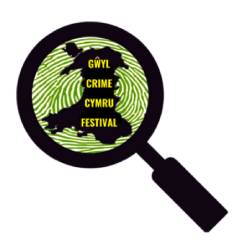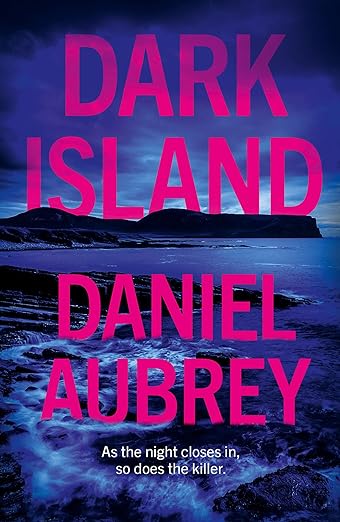European Literature – Denmark
This week is all about Nordic fiction – Nordic Noir and all those stories of fables and more, writers who have only just been translated into English and others who remain, yet to be discovered.
With European Literature Network, we’re highlighting a few this week and today it’s the turn of Denmark!
Think Denmark is all Hans Christian Andersen? Allow Dr Jakob Stougaard-Nielsen, Senior Lecturer in Scandinavian Literature in the School of European Languages, Culture and Society at UCL to tell you more…
Although geographically small, Denmark has fostered storytellers who have longed for, and engaged with, the wider world by telling gripping tales that combine exotic locations with global concerns, as Peter Høeg did with his Danish-Greenlandic heroine in Miss Smilla’s Feeling for Snow. Danish literature is an example of a small language that has made its mark on the world.
 If Danish literature is anything it is restless. Today it seems to be “all over the place” – geographically, thematically and formally: from Morten Søndergaard’s concrete poetry inWordpharmacy (2012), where word classes are drugs to be taken in measured doses, to Jussi Adler-Olsen’s addictive Department Q crime series; and from Madame Nielsen’s record of travels in the footsteps of refugees in Invasionen (“The Invasion – A Stranger in a Flood of Refugees”, 2016) to Charlotte Weitze’s Den afskyelige (“Big Foot” 2016) – an uncanny tale about love in an age of climate change. Danish literature impatiently jumps from small-scale laboratory experiments with poetic language to large-scale transformations of the human experience in an unsettling global world.
If Danish literature is anything it is restless. Today it seems to be “all over the place” – geographically, thematically and formally: from Morten Søndergaard’s concrete poetry inWordpharmacy (2012), where word classes are drugs to be taken in measured doses, to Jussi Adler-Olsen’s addictive Department Q crime series; and from Madame Nielsen’s record of travels in the footsteps of refugees in Invasionen (“The Invasion – A Stranger in a Flood of Refugees”, 2016) to Charlotte Weitze’s Den afskyelige (“Big Foot” 2016) – an uncanny tale about love in an age of climate change. Danish literature impatiently jumps from small-scale laboratory experiments with poetic language to large-scale transformations of the human experience in an unsettling global world.
 Navigating between the Danish periphery and the wider world is Carsten Jensen’s epic seafaring novel We, the Drowned (trans. Charlotte Barslund and Emma Ryder, Harvill Secker, 2010). Narrated in the communal voice of the small, south-Danish port town of Marstal, the novel chronicles generations of war-weary sailors from the outbreak of Denmark’s First Schleswig War against Prussia in 1848 to the end of World War II. It is a larger-than-life novel, full of fantastic local anecdotes, unsettling portraits of precarious lives at the edge of the sea, and a gripping fable of Denmark in the world.
Navigating between the Danish periphery and the wider world is Carsten Jensen’s epic seafaring novel We, the Drowned (trans. Charlotte Barslund and Emma Ryder, Harvill Secker, 2010). Narrated in the communal voice of the small, south-Danish port town of Marstal, the novel chronicles generations of war-weary sailors from the outbreak of Denmark’s First Schleswig War against Prussia in 1848 to the end of World War II. It is a larger-than-life novel, full of fantastic local anecdotes, unsettling portraits of precarious lives at the edge of the sea, and a gripping fable of Denmark in the world.
 Epic scale, restlessness, violent deaths and sea journeys are also found in Kim Leine’s The Prophets of Eternal Fjord (trans. Martin Aitken, Norton, 2015). At the centre of this rare Danish colonial novel, set in eighteenth-century Greenland, is the Danish-Norwegian, Rousseau-quoting missionary Morten Falck, whose confrontation with the hardy Inuit “prophets” leads to his (and the ruling colonial Danes’) inner turmoil, self-doubt and sin.
Epic scale, restlessness, violent deaths and sea journeys are also found in Kim Leine’s The Prophets of Eternal Fjord (trans. Martin Aitken, Norton, 2015). At the centre of this rare Danish colonial novel, set in eighteenth-century Greenland, is the Danish-Norwegian, Rousseau-quoting missionary Morten Falck, whose confrontation with the hardy Inuit “prophets” leads to his (and the ruling colonial Danes’) inner turmoil, self-doubt and sin.
While Danish authors traverse oceans and time, and render our historical past uncanny, an equally dominant strain in the Danish literary DNA are writers obsessing with the details of small-scale everyday life – an everyday, however, that threatens to burst into major conflict at any moment. The master of existential minimalism is Helle Helle, whose This Should Be Written in the Present Tense (trans. Martin Aitken, Harvill Secker, 2011/2014) is a good introduction to her understated prose.
 From epic historical novels, minimalist absurdist prose and poetry to bestselling noir, Danish literature in the twenty-first century is at its most restless – reflecting, perhaps, the unsettling and creative opportunities of an increasingly homeless and helpless world.
From epic historical novels, minimalist absurdist prose and poetry to bestselling noir, Danish literature in the twenty-first century is at its most restless – reflecting, perhaps, the unsettling and creative opportunities of an increasingly homeless and helpless world.
Dr Jakob Stougaard-Nielsen
Dr Jakob Stougaard-Nielsen is Senior Lecturer in Scandinavian Literature in the School of European Languages, Culture and Society at UCL. He is the author of Scandinavian Crime Fiction(Bloomsbury 2017) and a co-investigator on the AHRC-funded research project, Translating the Literatures of Small European Nations
This is adapted from an article which was first published in The Riveter, magazine from the European Literature Network





